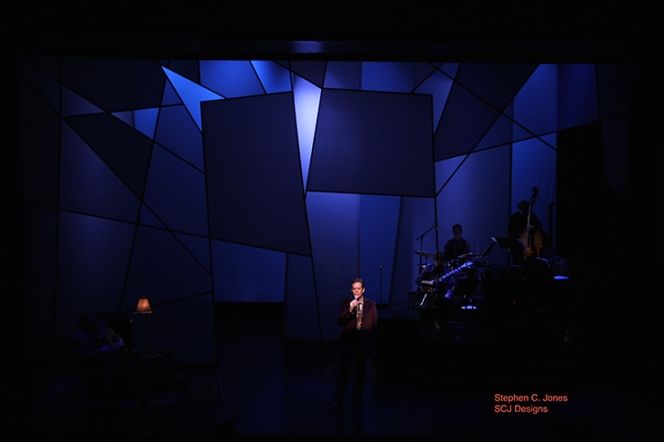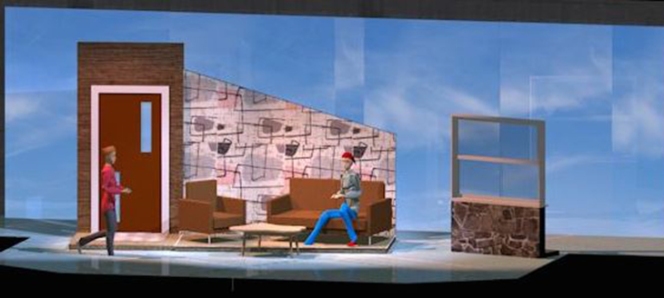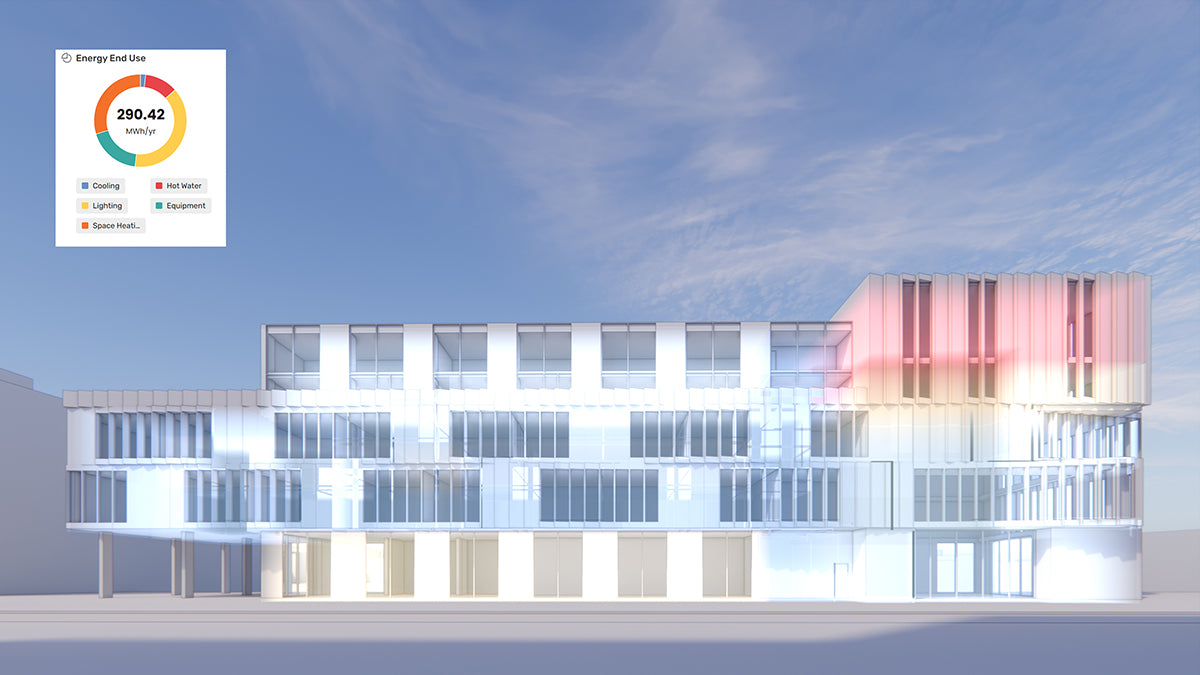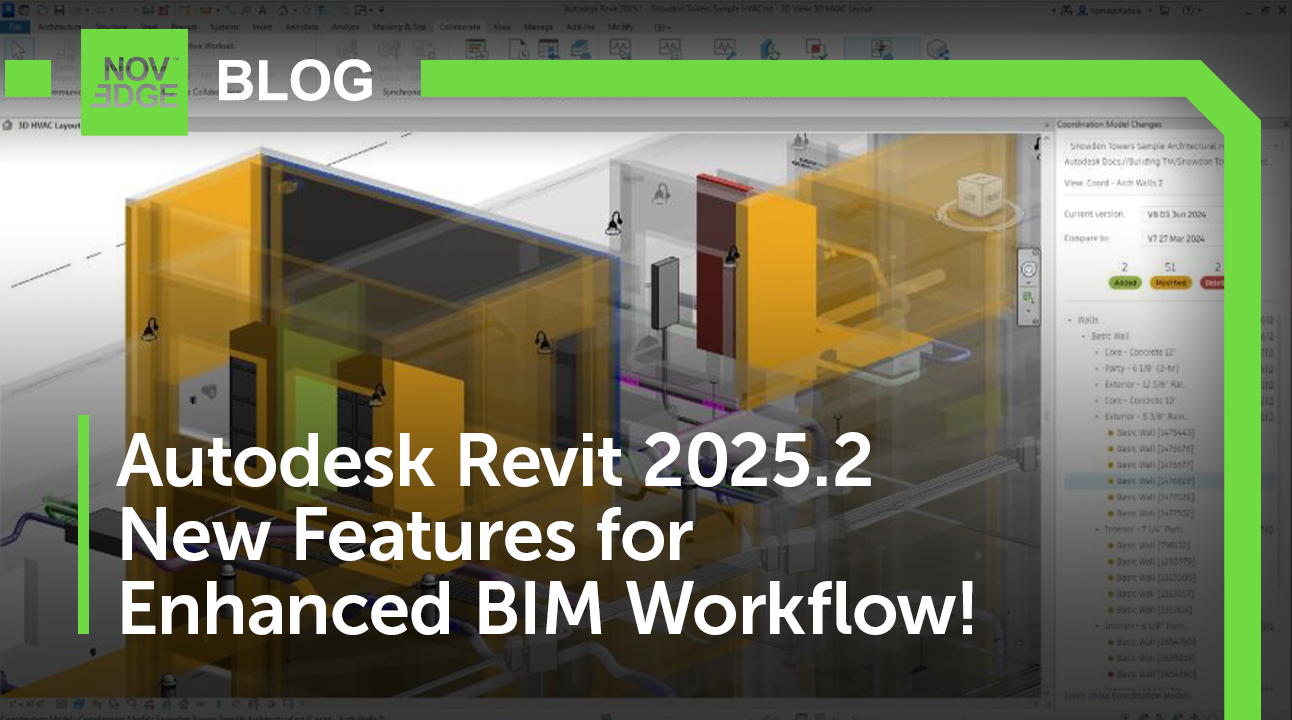Your Cart is Empty
Customer Testimonials
-
"Great customer service. The folks at Novedge were super helpful in navigating a somewhat complicated order including software upgrades and serial numbers in various stages of inactivity. They were friendly and helpful throughout the process.."
Ruben Ruckmark
"Quick & very helpful. We have been using Novedge for years and are very happy with their quick service when we need to make a purchase and excellent support resolving any issues."
Will Woodson
"Scott is the best. He reminds me about subscriptions dates, guides me in the correct direction for updates. He always responds promptly to me. He is literally the reason I continue to work with Novedge and will do so in the future."
Edward Mchugh
"Calvin Lok is “the man”. After my purchase of Sketchup 2021, he called me and provided step-by-step instructions to ease me through difficulties I was having with the setup of my new software."
Mike Borzage
The Edge: Stephen Jones – Designing Light with Vectorworks Spotlight
July 08, 2014 6 min read
Editor's Note: Stephen Jones will present a live webinar on Vectorworks Spotlight on Wednesday July 23rd at 11 am PST, as part of the Novedge Webinar Series. The webinar is free and you can read more about it and register here.

Novedge: Tell us a bit about who you are and what you do.
Stephen Jones: I am a professional Theatrical Lighting and Scenic Designer, and I serve as an Assistant Professor of Theatre Design at Vassar College. From a very young age, I have always been fascinated by the spectacle of a production–the way art and technology can come together to engage the imagination and effectively tell a story. As a designer, I work closely with the collaborative team, composed of the director and other designers, to conceptualize and activate the text. Specifically as a lighting designer, I sculpt the stage with light, the way a painter paints. Working very closely with the scenic designer, I play with depth, shading, focus, mood, and most importantly movement. Shaping the way the story moves from moment to moment falls to me. I love the power that light has in drawing the observer's eye and controlling what is seen and when. Lighting is visual poetry to me.

Novedge: What matters most to you in design?
Stephen Jones: To me what matters most with the theatrical design process is cohesion. I find that as an artist in a collaborative environment, there exists a temptation to try and justify one's place in the storytelling process by over saturating the stage with “stuff” just for the sake of "wowing" the audience. A designer can forget that all the elements, such as the text, the architecture of the body, the costumes, lighting, and sound, share the stage.
Quite often all that is needed is a simple effective gesture that allows the other elements of the play to fill in the missing gaps. I love it when we, as a creative team, can find the perfect harmony between what the script is saying and what the design elements are doing, for those are the moments when the audience's imagination is fully engaged.
Novedge: How do you collaborate with your team and the rest of the crew during the creative process?
Stephen Jones: As in all the creative fields driven by technology, it takes a lot of organization and clear understanding of how to use the tools of technology to drive the “artistic" side. I tend to have two halves to the way I communicate: when I am speaking with the director and/or the artistic team, I use computer renderings in concert with research to discover how architecture and lighting feel within a moment. When I am talking with production crews, I take full advantage of the drafting and rendering software as well as the mobile options available on my i-devices. With cloud-based options, I can share lighting plots, reports, shop orders and other technical information from across the country. The drafting software lets me import programming information directly into the lighting console, which greatly speeds up the technical time needed in setup.
Novedge: What is a recent project that you worked on?
Stephen Jones: Two projects come to mind: I served as the Lighting Designer for a musical production at Portland Stage in Portland Maine. The production is titled Words By: Ira Gershwin and the Great American Songbook, by Joseph Vass. Directed by David Ellenstein and scenic design by Anita Stewart. The production design was centered around the tapestry experiences Ira had with his brother George and others musicians and lyricists during during his life.



Anita and I worked hand in hand on the environment for this design. We played with opaque and translucent fabric panels in a collage like pattern. The panels served two purposes during the performance. Practically they were used as projection surfaces, and aesthetically as a canvass for light that helped set the tone for the songs and story being told. As you can see from the renderings there are several shapes that make up the scenic elements. I assigned two fixtures (one with color changing capabilities and the other with a pattern changing unit) to each shape to maximize the features of the panels. Based on the short load in and technical rehearsal time, we had to have a solid plan for every fixture with as few surprises as possible. Using Vectorworks Spotlight, I was able to figure, in 3D space, lighting positions and the quarks of the space. I could also determine fixture types and the best angles to attack the stage along with anticipating the possible shutters cuts needed. The reports feature of Spotlight gives me all information I need so that most of the hard work is complete before I ever step foot in the theatre.


The project I am currently working on is at Capital Stage Theater company in Sacramento, CA. Maple and Vine by Jordan Harrison, directed by Peter Morhmann. On this production I am serving as the scenic and projection designer.
The idea behind the design elements is to establish a contradiction between the "real" world of 2014 and a construct of the ideal 1955 community. Because of the multiple locations of this play and the fast moving action, Peter and I had to work hard to creating a suggestive environment that would play with the audiences perceptions. The segmented scenic units work together with the projection design and the lighting design (Steven Decker), to move the story from location to location. The scenic elements have hidden surprises to help as well. We are going into technicals rehearsal in few weeks, so check back (or go see it) to see how we did.


Novedge: What software do you use?
Stephen Jones: The workhorse software for me is Vectorworks. They have done a fantastic job of incorporating the needs of the entertainment industry into their software with the Spotlight component. The software has in my opinion three big assets. First, the up-to-date 3D library of theatrical tools such as lighting fixtures , (including LED and moving fixtures). Included with each tool is the ability to render information like photometrics, gel color, templates, and automated movements with intelligent fixtures. This saves me time when it comes to calculations and generating reports as well as giving me instant visual feedback for practicalities sake. The second asset is how Vectorworks interfaces with other software and equipment I use in the production process. After creating a plot, I can export all the information to my iPad, or lighting console. The software links perfectly with third party apps and other software that is specifically designed for theatre. The third is the rendering engine. Simply put, I love it! With other software, I have found that I need to add a third party program to enhance the quality of the rendering for presentation. With Vectorworks 2014, I have the ability to create presentation-worthy renderings of lighting and textures that help showcase my designs.
Novedge: How does teaching inform your art practice and vice versa?
Stephen Jones: I should start by saying that when I started as a professional designer I never thought I would go into teaching. As an artist and a professor, I am fascinated with how closely related the idea of teaching is to the collaborative arts. In the classroom I draw upon professional experiences. We work on establishing a language for storytelling, how to process ideas using, art and research. I also work with them on developing skills to communicate their ideas. What never ceases to amaze me is how much my students inspire and fuel my artistry. They have an untainted, honest approach to storytelling. My scenography course, for example, is designed as an introduction to the idea of how we create a visceral theatrical experience based on keys unlocked from the text. Their "why not” approach to exploration is infectious. Teaching also forces me to stay current with the latest methods, technologies and software so that I can empower my students with the tools and knowledge they need to be competitive in the work place. This is a long winded way of saying that my teaching informs my art as much as my art informs my teaching.

Novedge: If you could go back in time, what would you say to your younger self before embarking in your current career?
Stephen Jones: I would say, "Self! Enjoy life because you will find inspiration and creativity in everything around you." As a young artist I was fortunate to have 4 mentors in my life. Looking back to lessons they tried to teach me I can appreciate that they looked for life experiences to fuel their creative engines. I love the idea of allowing yourself to turn off the design brain and just observe as much in this world as possible. Travel, eat, drink, smell, observe, and most importantly, try not to worry so much! As a young man I was so worried about “getting it right” that I feel I missed out on these types of opportunities that could have helped me not only as a theatre designer, but as someone that celebrates the creative spirit. Funny enough, I stress this to all of my students regularly.
Don't forget to register for Stephen's webinar 3D Light Renderings with Vectorworks Spotlight.
See more of Stephen's work on his website and connect with him on Twitter.
Get your copy of Vectorworks Spotlight 2014 at an unbeatable price on Novedge.com.
Related articles
Also in NOVEDGE Blog

How the AEC Industry Shifted Towards Essential Sustainable Building Design
August 15, 2024 4 min read
Explore sustainable building design strategies at NOVEDGE, focusing on eco-friendly practices for resilient and efficient structures.
Read More
Unlocking New Realms of Design with Enscape 4.1: Introducing Impact Add-on and Lot More
August 02, 2024 2 min read
Discover Enscape 4.1's new features, including Enscape Impact and artistic visual modes, to elevate design efficiency at NOVEDGE.
Read More
Explore Autodesk Revit 2025.2: New Features and Enhancements for Enhanced BIM Workflows
July 30, 2024 3 min read
Read MoreSubscribe
Sign up to get the latest on sales, new releases and more …



